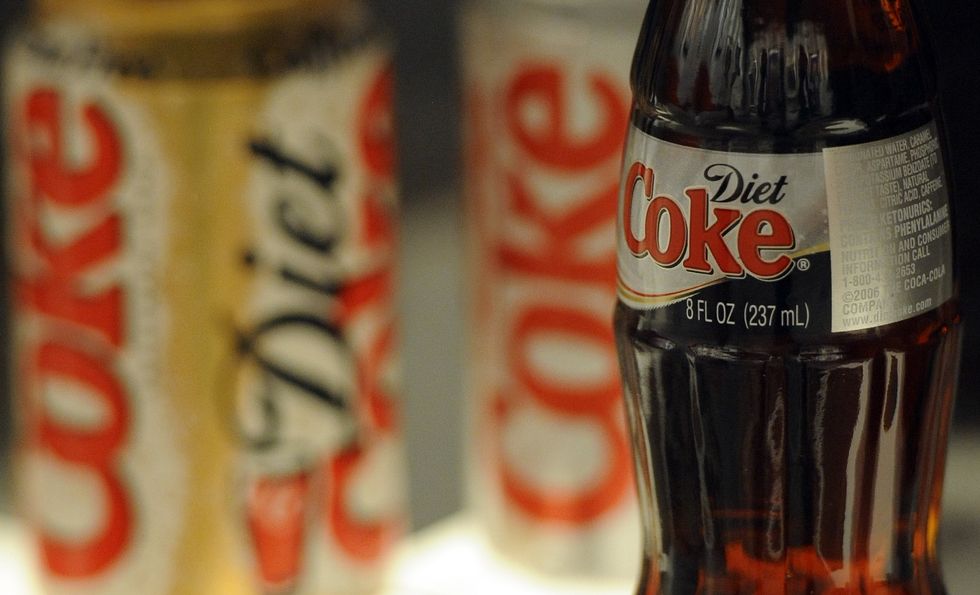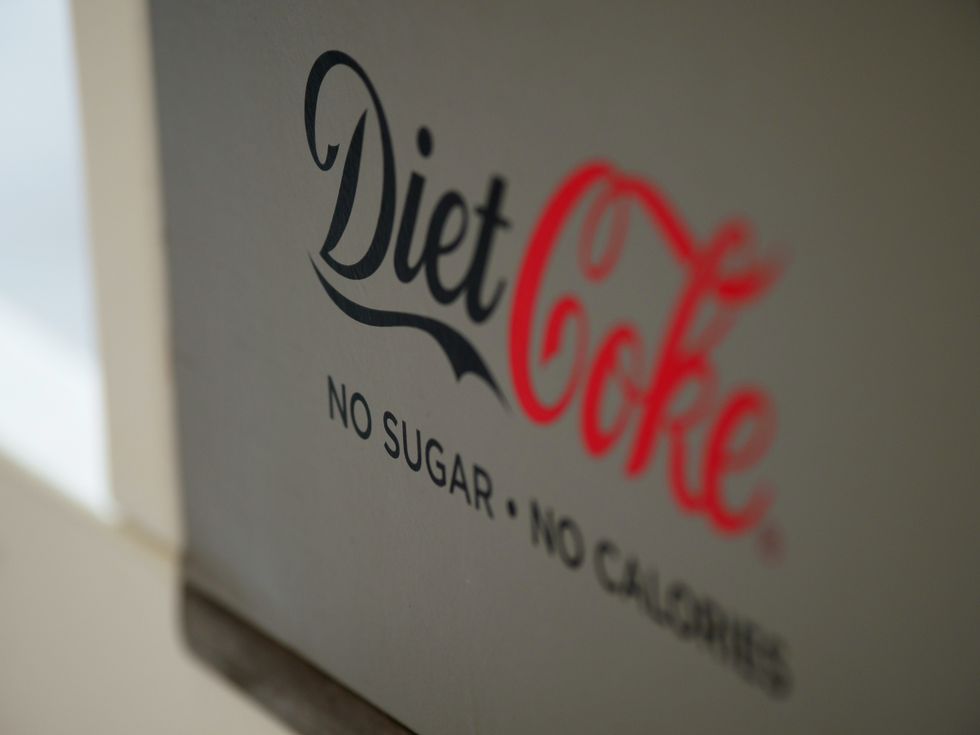Cancer warning: Diet Coke ingredient increases risk of illness, says WHO

The World Health Organisation is set to issue a warning about a common sweetener used in drinks such as Diet Coke
|Pixabay

A common sweetener will be listed as 'possibly carcinogenic to humans' from next month
Don't Miss
Most Read
The World Health Organisation is set to issue a warning about a common sweetener, used in drinks such as Diet Coke, which could possibly cause cancer.
Aspartame will be listed as “possibly carcinogenic to humans” from next month following a report by the WHO’s International Agency for Research on Cancer (IARC).
As part of the report, a group of external experts investigated and assessed whether products could cause a potential hazard.
However, the IARC’s decisions have faced criticism for sparking needless alarm in the past.

Aspartame will be listed as 'possibly carcinogenic to humans' from next month following a report by the WHO
|PA
It has previously put working overnight and consuming red meat into its “probably cancer-causing” class, and using mobile phones as “possibly cancer-causing”, similar to aspartame.
The report does not consider how much aspartame a person can safely consume.
This advice comes from a separate body known as JECFA, an international expert committee on food additives administered jointly by the Food and Agriculture Organisation of the UN and WHO.
According to JECFA, aspartame is safe to consume within accepted daily limits, with an adult weighing 9st needing to drink between 12 and 36 cans of diet soda – depending on the amount of aspartame in the drink – every day to be at risk.
The International Sweeteners Association (ISA), whose members include Mars Wrigley, Coca-Cola and Pepsico said it had “serious concerns with the IARC review, which may mislead consumers”.
Frances Hunt-Wood, secretary general of the ISA said: “IARC is not a food safety body and their review of aspartame is not scientifically comprehensive and is based heavily on widely discredited research."
JECFA is due to announce its findings on the same day that the IARC makes public its decision on July 14.
The two separate reports have sparked concerns from industry and regulators that it could be confusing for the public.

The International Sweeteners Association (ISA), whose members include Mars Wrigley, Coca-Cola and Pepsico said it had 'serious concerns with the IARC review, which may mislead consumers'
|Unsplash
“We kindly ask both bodies to coordinate their efforts in reviewing aspartame to avoid any confusion or concerns among the public,” Nozomi Tomita, an official from Japan’s ministry of health, wrote in a letter to Zsuzsanna Jakab, WHO’s deputy director general.
For several years, Aspartame has been extensively studied and last year a study in France among 100,000 adults showed that people who consumed larger amounts of artificial sweeteners – including aspartame – had a slightly higher cancer risk.
Aspartame is authorised for use globally by regulators who have reviewed all the available evidence, while major food and beverage makers have defended their use of the ingredient.










